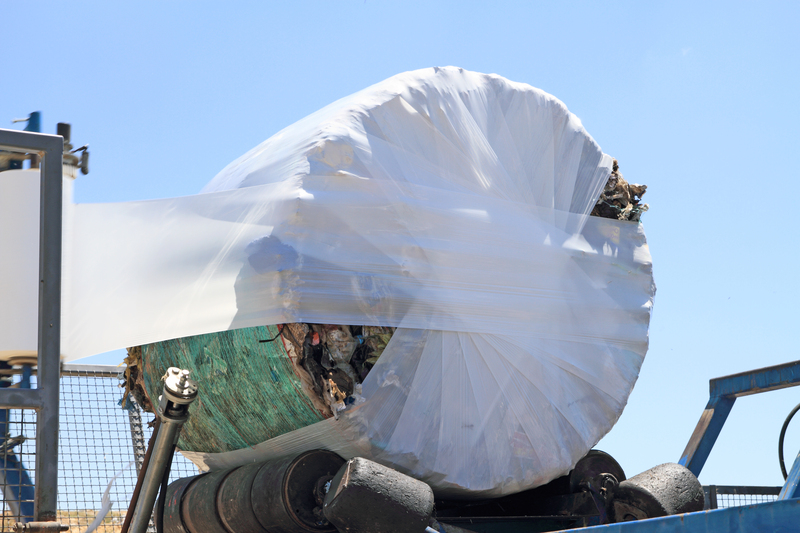The Art of Saving Money on Bulky Waste Disposal
Are large, unwanted items cluttering up your home or business premises? Proper and cost-effective bulky waste disposal can be challenging. Whether you're renovating, moving, or clearing out decades of accumulated belongings, learning the art of saving money on bulky waste removal can significantly ease the process. In this comprehensive guide, we'll explore affordable strategies, clever tips, and sustainable solutions for managing and disposing of large waste items like furniture, appliances, mattresses, and more.

Understanding Bulky Waste: What Qualifies?
Bulky waste, also called large item waste or bulk trash, refers to items too big to be picked up by regular waste collection. Examples include:
- Old furniture (sofas, beds, wardrobes, desks, tables)
- Large appliances (refrigerators, washing machines, ovens)
- Mattresses and box springs
- Carpets, rugs, and padding
- Garden debris and tree branches
- Large toys or sports equipment
- Window frames or doors
Knowing what counts as bulky waste is the first step in efficiently managing its disposal.
Why Smart Bulky Waste Disposal Matters
Bulky items are a headache for many reasons:
- They occupy valuable space.
- They're difficult and expensive to transport.
- Improper disposal can harm the environment.
Yet, saving money on bulky waste removal can be easy when you know your options. It's also a chance to be more eco-friendly and help your local community.
Top Money-Saving Tips for Bulky Waste Disposal
1. Explore Council or Municipal Collection Services
Many local councils or municipalities offer free or heavily subsidized bulky item collection a few times per year. These programs let residents schedule pickups for items like couches, appliances, and old mattresses. Take advantage of these services:
- Check your local council's website for collection schedules and guidelines.
- Register early--slots can fill quickly, especially during moving season.
- Be aware of restrictions: there are often limits per household and prohibited items (like hazardous waste).
Tip: If you're coordinating with neighbors, you may be able to arrange a combined pickup, helping everyone save time and money.
2. Repurpose, Refurbish, or Upcycle Bulky Items
Before paying for removal, consider whether your bulky waste has a second life. Many items can be reused, refurbished, or upcycled:
- Sand and repaint old furniture to create unique pieces.
- Convert a wooden pallet into shelving or storage.
- Reuse parts--like springs from a mattress or doors from a cabinet.
You'll reduce waste and possibly avoid disposal costs altogether!
3. Donate or Sell Items in Good Condition
Don't assume your bulky items are worthless! Many charitable organizations and thrift shops accept large donations, and some offer free pickup:
- Contact local charities such as Habitat for Humanity, Salvation Army, or Goodwill.
- Use online classifieds or social media platforms like Facebook Marketplace or Craigslist.
- Organize a garage sale or "free pile" at the curb with a clear "Free" sign.
Benefits: Not only do you save on bulky item disposal costs, you help others in your community.
4. Share or Split Skip Bin Hire with Others
Skip bins (also known as dumpsters) can be expensive for individual use, but sharing the cost is a savvy move:
- Coordinate skip bin hire with neighbors, friends, or local groups.
- Fill the skip efficiently to maximize space--break down items as much as possible.
- Choose the right size skip to avoid paying for unused capacity.
This can dramatically reduce bulky waste removal expenses.
5. DIY Disposal: Take it to the Local Tip or Recycling Center
If you have a vehicle capable of transporting large items, consider bringing waste directly to your municipal recycling center or landfill. Many facilities offer lower fees for residents:
- Check local requirements and fees ahead of time.
- Sort items by material (metal, wood, electronics) to save on processing costs.
- Some centers accept certain bulky waste items free of charge, especially for recycling (e.g., white goods, scrap metal).
A few trips might save you a substantial amount on bulky waste disposal.
6. Utilize Producer Take-Back Programs
Many manufacturers and retailers now offer take-back or trade-in schemes for specific bulky items:
- Appliances: Stores sometimes offer free removal when delivering a replacement.
- Mattresses: Companies may collect your old one for recycling when you buy new.
- Electronics: E-waste recycling events or permanent drop-off points.
Always ask your supplier about removal when making a large purchase--it can save you both money and time.
7. Time Your Waste Disposal Strategically
Many waste management companies offer seasonal promotions--especially at the start or end of the year when demand is high. Keep an eye out for:
- Spring cleaning specials
- End-of-year discount days
- Bulk pickup events hosted by local councils
Booking during these periods can significantly decrease your large waste disposal costs.
Eco-Friendly & Sustainable Bulky Waste Removal Methods
Saving money doesn't mean ignoring the environment. Here's how you can be both budget- and eco-friendly:
Recycle Whenever Possible
Most bulky waste consists of materials that can be recycled or repurposed:
- Metals: Washers, dryers, ovens, and metal bed frames can be scrapped for cash at local recyclers.
- Wood: Untreated, clean wood may be accepted for composting or chipping.
- Electronics: TVs, monitors, computers should be e-waste recycled due to hazardous components.
Not only do you save on landfill fees, but you'll make a positive impact on the environment.
Arrange Special Pickup for Hazardous Bulky Waste
Some bulky materials--like fridges, freezers, or TVs--require special disposal because they contain harmful substances. Check your council's policies for:
- Hazardous waste amnesty days
- Designated drop-off facilities
- Manufacturers' recycling events
Improper disposal can incur heavy fines and environmental damage.
Composting & Green Waste Solutions
For large amounts of organic bulky waste (tree limbs, bushes, garden debris), explore:
- Community green waste bins or drop-off points
- Neighborhood composting initiatives
These services are often cheaper than landfill and support eco-friendly waste management.
Common Mistakes That Cost You Money
Avoid these bulky disposal pitfalls that can end up costing more in the long run:
- Not checking for free or subsidized services before hiring a private hauler.
- Failing to break down items--resulting in paying for unused skip space.
- Ignoring recycling opportunities.
- Incorrectly placing items on the curb (can result in fines).
- Waiting too long and being forced to pay extra for urgent removal.
Staying informed means you can maximize savings every step of the way.
Professional Bulky Waste Removal: When Is It Worth the Cost?
Sometimes, the convenience and safety of hiring a professional waste removal company outweigh the expense. For example:
- Heavy or hazardous items (pianos, hot tubs, fridges filled with gas or chemicals)
- No personal vehicle or help available
- Very tight deadlines requiring rapid clearance
Get several quotes, check for reviews, and ask about eco-friendly practices. You may still save money by grouping removals or choosing off-peak times.

FAQs: Bulky Waste Disposal on a Budget
Can I leave my bulky waste on the curb for regular trash pick-up?
No. Most cities will not pick up bulky items as part of regular rubbish collection. Placing them on the curb outside of bulk collection days can result in fines.
How do I find out about free bulky waste collection in my area?
Check your local council or city government's website, or call their waste management department. They will list schedules, registration procedures, and eligible items.
What can I do with a damaged, unsellable sofa?
Try to donate to animal shelters (they often want soft seating), offer on a "free to collect" basis, or break it down for parts before resorting to landfill.
Are private waste removal services expensive?
The cost varies, but by comparing quotes and bundling items (or sharing costs), you can keep expenses low. Always inquire about seasonal discounts.
Is burning bulky waste a good idea?
No! Burning items like mattresses, treated wood, or furniture releases toxic chemicals and may be illegal.
Conclusion: Mastering the Art of Saving on Bulky Waste Disposal
Achieving cheap bulky item disposal is possible with planning, resourcefulness, and local knowledge. Whether you're tackling a one-time cleanout or managing ongoing bulk waste for your business, you can mix-and-match strategies:
- Take full advantage of council or municipal services.
- Donate, sell, or upcycle wherever possible.
- Pool resources with neighbors for skip bins.
- Be aware of recycling and special drop-off programs.
- Reduce, reuse, and recycle to cut landfill waste and costs.
Remember, responsible bulky waste disposal helps your wallet, your community, and the environment. Make your next clear-out cheaper, greener, and easier by applying these expert tips!
Ready to start saving? Review your options, check local programs, and embrace the art of affordable bulky waste disposal today.
